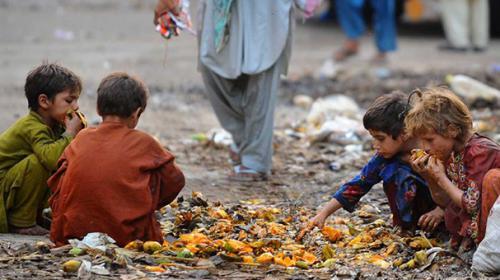As Nigeria joins countries
around the world to celebrate International Day of the Girl, Kaduna State
fulfilled its commitment to launch a campaign to end violence against children.
Kaduna is now the seventh Nigerian state to have launched such a campaign,
following promises made by all states to put in place action plans to end
violence against children.
The Kaduna State Governor Nasir Ahmad El-Rufai, Deputy
Governor Barnabas Bala Bantex promised that government policies would be
reinforced to improve the quality of life for girls and to protect the rights
of children in Kaduna state. "Basic education is free and compulsory,
especially for school age girls in Kaduna State," the Deputy Governor
noted. "We must continue to work with UNICEF and other development
partners to protect children and to end the incidence of any form of violence
against children," he added at today’s launch of the campaign in
Kaduna.
“If Nigeria is to realize
its commitment to achieve gender equality and to empower all women and
girls by 2030, it needs to redouble its’ efforts to meet the challenges of
violence against girls, child marriage, female genital mutilation, and unequal
access to education,” noted Pernille Ironside, UNICEF Representative in
Nigeria a.i. “These are the fundamental drivers of inequity for girls.”
At the National Centre
for Women Development in Abuja this morning, UNICEF and partners, including the
Federal Ministry of Education, the Malala Fund, ONE Campaign and DFID, launched
a series of activities to mark International Day of the Girl, which will
include essay writing competitions and leadership training for girls.
The global theme for the
day this year is “Power of the Adolescent Girl: Vision 2030,” focusing on
“EmPOWER girls: Emergency response and resilience planning.”Global studies
indicate that in crisis situations, girls are 2.5 times more likely to be
out of school than boys, compromising their future prospects for work and financial
independence as adults. Health services critical to girls’ wellbeing, including
sexual and reproductive health services and information, maternal care, and
provisions for menstrual health and hygiene are often scarce or insufficient
during periods of conflict.
At the Abuja celebration of
International Day of the Girl this morning, UNICEF called for girls to
have access to specially-tailored programmes to meet their needs in the
humanitarian crisis in northeast Nigeria, where an estimated 4 million children
are in need of humanitarian assistance in Borno, Yobe and Adamawa states.
Thousands of girls in
northeast Nigeria have been held by Boko Haram, most suffering the trauma of
violence, rape and forced ‘marriage.’ Even when they escape or are released from
captivity, the stigma associated with such harrowing experiences can be
lifelong and girls require specific support to reintegrate into their
communities.
UNICEF interventions in
education, health, nutrition, water, sanitation, and child protection in the
northeast are designed to be gender-sensitive in order to meet the needs of
both girls and boys.
UNICEF also supports the
Borno State Ministry of Women Affairs & Social Development in the provision
of programmes for girls affected by the insurgency. These include social
integration of survivors of conflict-related sexual violence, stigma,
counselling support and access to education.
“In emergency situations
like the one in northeast Nigeria, we must be sure to listen to girls and
encourage them to participate in the processes that affect them, including in
disaster management, efforts to build resilience, and in peacebuilding and
recovery,” said UNICEF’s Pernille Ironside, “Only with girls’ participation
will their perspectives and needs be understood and incorporated into the
humanitarian response.”
... Linking agrobiz, sustainable environs, people & technology









